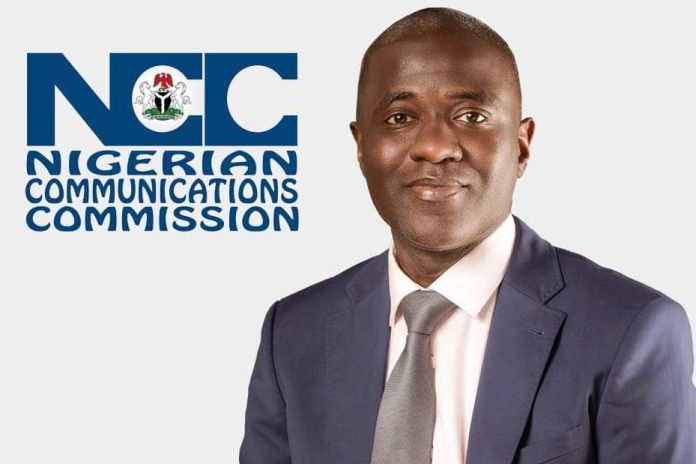….Nigeria’s broadband penetration rate
…Targets coverage for 80 per cent of country’s population
By Chimezie Godfrey
The Nigerian Communications Commission (NCC) has unveiled strategy to boost Nigeria’s broadband penetration rate targeting the provision of coverage of, at least, 80 per cent of the country’s population.
Nigeria’s inflation rate hits 27.33% in October– NBS(Opens in a new browser tab)
The Executive Vice Chairman, NCC, Dr Aminu Maida revealed this during the 23th Annual Nigeria ICT Impact CEO Forum/Africa digital Award at the Orient Hotel, Lagos on Saturday, with the theme,”Broadband Availability and Potentials of Data Revolution”.
Maida disclosed that limited access to high-speed service, lack of advanced IT skills, funding, inadequate infrastructure among several other factors have been identified as the major constraints slowing Nigeria’s internet economy.
He however noted that Nigeria has demonstrated commitment and passion, through various policy and regulatory frameworks, to ensure wider broadband coverage for the country.
Speaking on a new strategy plan of the Federal Government, he said,”One of the five pillars of the Strategic Blueprint is the “Infrastructure” component, which focuses on broadband accessibility, availability and affordability. Other pillars of the Ministerial strategic plan are Knowledge; Policy; Innovation/Entrepreneurship and Capital; and Trade. The Strategic Plan is designed to drive a major part of the overall implementation of the Renewed Hope Agenda of President Bola Tinubu, GCFR.
“The NCC, under my leadership will support the target of the Ministry to boost Nigeria’s broadband penetration rate to 70 per cent by the end of 2025 in line with the NNBP 2020-2025, through the laying of 95,000 kilometres of fibre optic cables across the country. In the same vein, and in line with the vision of the Ministry, we are targeting the provision of coverage of, at least, 80 per cent of the country’s population, especially the underserved and unserved populations by the end of 2027.
“We also intend to secure between 300-500 per cent increase in broadband investment by the end of 2027; while we work to reduce the gap of unconnected Nigerians in rural areas from 61 per cent to less than 20 per cent by 2027.
“Other key targets in the Strategic Plan of the Ministry, which has adopted a clear-cut strategy to transform Nigeria’s digital economy sector and which the NCC is committed to, include the plan to deliver data download speed of 25Mbps in urban areas and 10Mbps in rural areas by the end of 2025; achieve a 50 per cent improvement in quality of service (QoS) by 2024; 22 per cent increase in net GDP contribution by digital economy by 2027 as well as increase in investment into Nigeria’s telecommunications sector by 15 per recent year-on-year.
Ndume rates Unimaid best for its stand against terrorism(Opens in a new browser tab)
“The Ministerial blueprint also targets 70 per cent digital literacy by 2027; a capital increase raised by Nigerian tech startups by 50 per cent year-on-year from $1 billion/year in 2022 to $5 billion/year in 2027; and achieving 25 per cent domiciliation of local technology startups by 2027.”
According to him, other expectations are to accomplish for Nigeria, 60 per cent government data digitization by the end of 2026; the creation of 50,000 Artificial Intelligence (AI) industry jobs by 2026 while also ensuring the accomplishment of 22 per cent net GDP contribution by 2027, among others.
The EVC reiterated the Commission’s commitment to support the Renewed Hope Agenda of the current administration by stimulating stronger broadband infrastructure in the country.
“In closing, I would like to reiterate the commitment of the Commission to supporting the strategic blueprint of our supervising Ministry and the Renewed Hope Agenda of the current administration by stimulating stronger broadband infrastructure that extends beyond connecting people but also focuses on economic empowerment and creating opportunity for inclusion.
“The current administration expects that with improved access to quality and affordable broadband, and upgraded critical services, we would be able to work collaboratively to catalyze a digital transformation that impacts our entire population. To achieve this potential, the NCC will continue to ensure diligent implementation of our broadband strategy to ensure that everybody is carried along.
“As a Commission, we will also ensure effective management of our spectrum resources as pathways for the growth of new and emerging technologies, improvement of businesses and seamless access to government services.
“I call on all necessary stakeholders to join hands with the Commission as it discharges its regulatory mandate towards building robust and resilient broadband infrastructure that supports the potential of the growing data revolution to drive our collective prosperity in Nigeria,’ he said.





